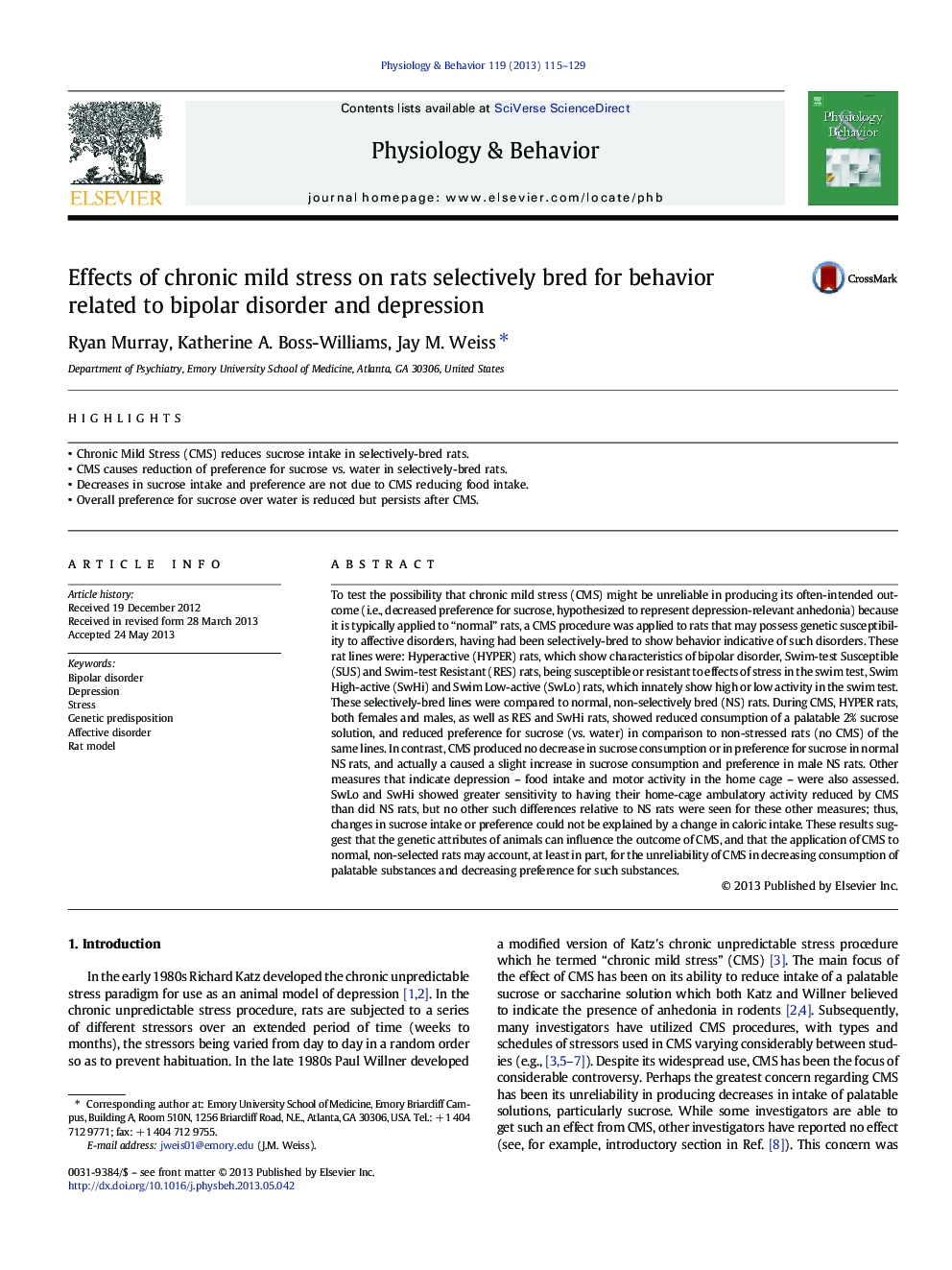| کد مقاله | کد نشریه | سال انتشار | مقاله انگلیسی | نسخه تمام متن |
|---|---|---|---|---|
| 5924791 | 1571198 | 2013 | 15 صفحه PDF | دانلود رایگان |
- Chronic Mild Stress (CMS) reduces sucrose intake in selectively-bred rats.
- CMS causes reduction of preference for sucrose vs. water in selectively-bred rats.
- Decreases in sucrose intake and preference are not due to CMS reducing food intake.
- Overall preference for sucrose over water is reduced but persists after CMS.
To test the possibility that chronic mild stress (CMS) might be unreliable in producing its often-intended outcome (i.e., decreased preference for sucrose, hypothesized to represent depression-relevant anhedonia) because it is typically applied to “normal” rats, a CMS procedure was applied to rats that may possess genetic susceptibility to affective disorders, having had been selectively-bred to show behavior indicative of such disorders. These rat lines were: Hyperactive (HYPER) rats, which show characteristics of bipolar disorder, Swim-test Susceptible (SUS) and Swim-test Resistant (RES) rats, being susceptible or resistant to effects of stress in the swim test, Swim High-active (SwHi) and Swim Low-active (SwLo) rats, which innately show high or low activity in the swim test. These selectively-bred lines were compared to normal, non-selectively bred (NS) rats. During CMS, HYPER rats, both females and males, as well as RES and SwHi rats, showed reduced consumption of a palatable 2% sucrose solution, and reduced preference for sucrose (vs. water) in comparison to non-stressed rats (no CMS) of the same lines. In contrast, CMS produced no decrease in sucrose consumption or in preference for sucrose in normal NS rats, and actually a caused a slight increase in sucrose consumption and preference in male NS rats. Other measures that indicate depression - food intake and motor activity in the home cage - were also assessed. SwLo and SwHi showed greater sensitivity to having their home-cage ambulatory activity reduced by CMS than did NS rats, but no other such differences relative to NS rats were seen for these other measures; thus, changes in sucrose intake or preference could not be explained by a change in caloric intake. These results suggest that the genetic attributes of animals can influence the outcome of CMS, and that the application of CMS to normal, non-selected rats may account, at least in part, for the unreliability of CMS in decreasing consumption of palatable substances and decreasing preference for such substances.
Journal: Physiology & Behavior - Volume 119, 2 July 2013, Pages 115-129
